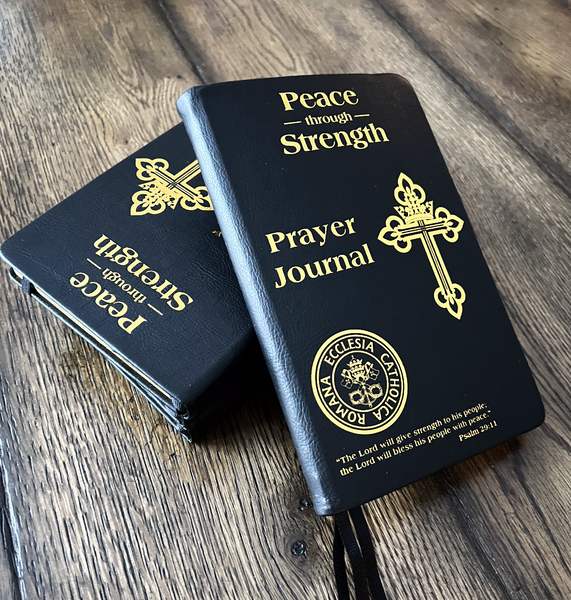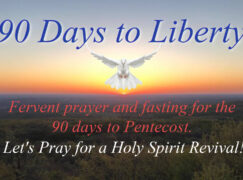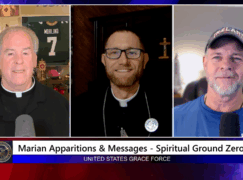

Day 29 – 90 Days to Liberty
Prayer is our outstanding supernatural resource for fighting the wiles of the enemy!
“Prayer is, beyond doubt, the most powerful weapon the Lord gives us to conquer evil … but we must really put ourselves into the prayer, it is not enough just to say the words, it must come from the heart. And also prayer needs to be continuous, we must pray no matter what kind of situation we find ourselves in: the warfare we are engaged in is ongoing, so our prayer must be on-going also.” – St. Alphonsus
You see? Whether it’s a Navy SEAL or a Saint, we admire those who put it all on the line — go “all in!” — those who are totally dedicated to the mission … and God admires them too. Throughout salvation history, we have seen how God responds to this resolute and determined kind of prayer, just as Jesus taught His disciples. It was in Nineveh that the entire city turned back to God and did all that they could, through prayer and fasting, to “demonstrate to” God that they were absolutely resolute in this “turning.” God saw how “serious” they were about this, and He was moved (Jonah 3:3-10). This is yet another story that demonstrates how God – a perfect Father – compels His children to be truly resolute and quite serious when calling out to Him.
The heroes of our faith are the warrior saints who have gone before us. God worked mightily and miraculously through them. Therefore, we must study their ways. How did they remain so well connected, in such strong friendship with God, so that His river of supernatural grace could flow so freely through them? What do these “SEALS for Christ” teach us about the ideal spiritual disciplines, the ultimate daily regimen of prayer?
The following are those top ten ideal and most rock-solid foundational practices of an authentically strong Catholic.
- The Morning Offering
- The Angelus (6 AM, noon, 6 PM)
- Mental Prayer (at least 15 minutes)
- Spiritual Reading (at least 15 minutes)
- Frequent Confession (at least once a month)
- Holy Mass and Communion
- Adoration of the Blessed Sacrament (regularly)
- Acts of Mortification (especially fasting)
- The Holy Rosary
- Brief Examination of Conscience (at night)
Our Daily Prayer for Liberty and for a Holy Spirit Revival
“Free us from every force of oppression, both internally and externally. Grant to our leaders the wisdom to protect and promote our liberties; by your grace may we have the courage to defend them, for ourselves and for all those who live in this blessed land. Heavenly Father, grant a Holy Spirit Revival in our land!” (Based on a prayer by the USCCB)
“Freedom from Acedia” by Fr. Rick Heilman
Recently, I wrote a reflection on pride. I said, “Pride is the Biggie,” because it’s “the sin that is most at work to divide and destroy our culture.” Although I believe that to be true, I would say the most dominant sin that characterizes our culture today is acedia. Acedia has been referred to as the “noonday devil.”
“Acedia” originates from the Greek, akèdia, meaning “lack of care.” It’s a kind of indifference or a “lack of spiritual energy,” which is a phrase from the book by Jean-Charles Nault, O.S.B., The Noonday Devil: Acedia, the Unnamed Evil of Our Times. Nault, the abbot of the Benedictine Abbey of Saint-Wandrille in France, is one of the world’s experts on acedia. I recall the acclaim this book had in 2015, and I ordered it right away. I highly recommend it.
Nault references how it came to be called, “the noonday devil.” In the writings of Evagrius of Pontus (345-399, one of the Desert Fathers), he explained that acedia manifests itself as a temptation for the monk to depart his cell. This temptation is often worst around midday, hence the “noonday devil.”
The reasons for abandoning his cell could all be reasonable or even noble: He may want to work on his health, or he is just seeking a change of scenery, or maybe he wants to visit family, or he believes he could help more people outside his cell. Therefore, acedia doesn’t necessarily always have to do with laziness. It could be manifested in activism.
Acedia can often be associated with “spiritual instability,” a kind of restlessness. So, the soul may find itself horrified by its commitments, even abhor the spiritual life. The soul finds itself stuck in a kind of spiritual malaise which prevents it from advancing in the spiritual life.
St. Thomas Aquinas said of acedia that it is a “sadness about spiritual good.” It’s a sadness of even the ultimate good of union with God. How can that be? St. Thomas says that man can become sad at the prospect of union with God because it requires him to give up goods to which he is attached.
Once someone detaches from their call to advance in the spiritual life, they can become satisfied with what St. Thomas calls a mere “animal beatitude.” In other words, we demote ourselves to mere animals, aimlessly feeding the flesh with all its lust and wants. Once this fails, and it usually does, we are left to fall into a nihilism, or even a hatred of being.
For a soul adrift in acedia, and therefore unstable with loss of meaning and purpose in life, he is left to vacillate between reducing himself to just another animal species, or worse, a blight on an otherwise perfect natural world. Is this sounding familiar yet? It should be; it is pervasive thought in a world becoming more and more disconnected from God.
How did we get here, and how do we get out of this epidemic of acedia in our culture, and even in our Church? I continue to believe we Catholics deserve much of the blame. Why? This is where I point to a previous reflection I gave on lukewarmness. Recall it was Pope St. Pius V who went so far as to say, “All the evil in the world is due to lukewarm Catholics.”
If we are the one true Church founded by Jesus Christ – and we are – then we were called to lift the world out of the emptiness of acedia that leads to believing we are mere animals. Yet, for more than 50 years, we have been peddling a weak and watered-down religion; a religion that denies the power of God; a religion of “activism” that seems to abhor the call to advance in the spiritual life. It almost seems like the proponents of this modern-day Catholic religion were (and are), themselves, plagued with acedia. Some even militate against a restoration of sacred beauty and sacred worship. “It’s too much,” they proclaim. “People won’t like our Church if we promote all the ‘sacred stuff.’” In essence, they are saying, “We need to be a ‘Church of Acedia’ in order to reach those caught in acedia.” And so, the acedia is left to spread like a virus.
In Paul’s letter to Timothy, he warned about just such a time as ours: “But mark this: There will be terrible times in the last days. People will be lovers of themselves, lovers of money, boastful, proud, abusive, disobedient to their parents, ungrateful, unholy, without love, unforgiving, slanderous, without self-control, brutal, not lovers of the good, treacherous, rash, conceited, lovers of pleasure rather than lovers of God— having a form of godliness but denying its power. Have nothing to do with such people” (2 Timothy 3:1-5).
Thank God, many are talking about the need for us to repent. But repent from what? We must repent from creating a Church that has the “form of godliness but denies its power.” This renewed faith and trust in the power of God, and worshiping as though we actually believe in it, is the antidote for our global pandemic: acedia. (From “Let Freedom Ring“)
You can enlist in the United States Grace Force HERE (please recruit family and friends!)
Information on the United States Grace Force can be found HERE
We highly recommend ordering the book “Let Freedom Ring” authored by Fr. Bill Peckman, Fr. James Altman and Fr. Rick Heilman. This amazing book will be a great tool for easy access, highlighting and bookmarking as you traverse through the first 40-days of our 90 Days to Liberty journey with tens of thousands of other special forces prayer warriors!
You can order the book at RomanCatholicGear.com.
You may want to consider using the Hallow App for Lent: Hallow.com
GET YOUR PEACE THROUGH STRENGTH PRAYER JOURNAL …
HERE









